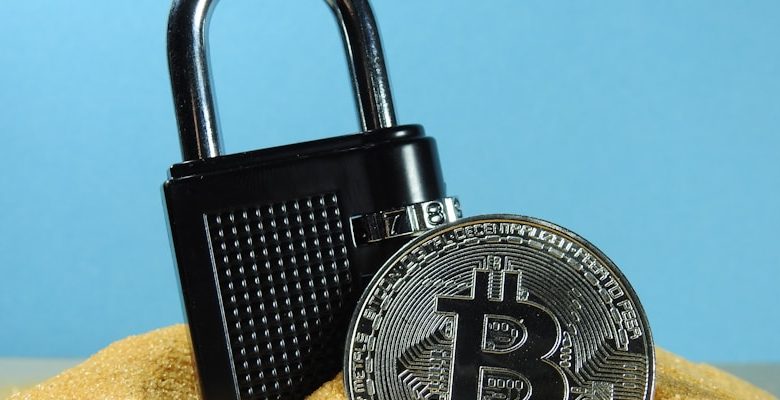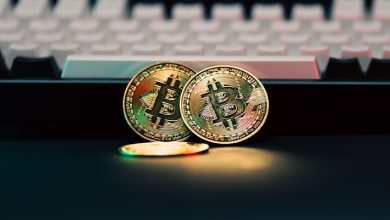Understanding the Risks of Public Wi-Fi for Crypto Users

- What is public Wi-Fi and how does it pose a risk to crypto users?
- The dangers of using public Wi-Fi when accessing your cryptocurrency accounts
- Tips for staying safe while using public Wi-Fi for crypto transactions
- Common security threats on public Wi-Fi networks for cryptocurrency users
- Why using a virtual private network (VPN) is crucial for crypto users on public Wi-Fi
- Case studies of crypto users falling victim to attacks on public Wi-Fi networks
What is public Wi-Fi and how does it pose a risk to crypto users?
Public Wi-Fi is a convenient way to access the internet in places like cafes, airports, and hotels. However, it poses a significant risk to crypto users due to its lack of security. When you connect to a public Wi-Fi network, your data is at risk of being intercepted by hackers who can easily steal your sensitive information, including your crypto wallet credentials.
These hackers can use various techniques such as man-in-the-middle attacks or packet sniffing to intercept your data. Once they have access to your information, they can steal your crypto assets without your knowledge. This makes public Wi-Fi networks a prime target for cybercriminals looking to make a quick profit.
To protect yourself from these risks, it is crucial to avoid accessing your crypto wallets or making transactions while connected to public Wi-Fi. Instead, use a virtual private network (VPN) to encrypt your internet connection and add an extra layer of security. Additionally, consider using a hardware wallet to store your crypto assets securely offline.
The dangers of using public Wi-Fi when accessing your cryptocurrency accounts
Using public Wi-Fi when accessing your cryptocurrency accounts can expose you to various risks and vulnerabilities that could compromise the security of your assets. When you connect to a public Wi-Fi network, you are essentially sharing the same network with strangers, making it easier for cybercriminals to intercept your data and gain unauthorized access to your accounts.
One of the main dangers of using public Wi-Fi for cryptocurrency transactions is the risk of man-in-the-middle attacks. In this type of attack, a hacker intercepts the communication between your device and the network, allowing them to steal sensitive information such as your login credentials, private keys, and transaction details.
Furthermore, public Wi-Fi networks are often unencrypted, making it easier for hackers to eavesdrop on your online activities. Without proper encryption, your data is transmitted in plain text, making it vulnerable to interception and exploitation by malicious actors.
Another risk of using public Wi-Fi for cryptocurrency transactions is the presence of rogue hotspots. These fake networks are set up by hackers to mimic legitimate public Wi-Fi networks, tricking users into connecting to them and giving cybercriminals access to their sensitive information.
To protect your cryptocurrency accounts from these risks, it is recommended to avoid using public Wi-Fi for transactions and access your accounts only through secure and private networks. Utilize virtual private networks (VPNs) to encrypt your internet connection and add an extra layer of security when accessing your accounts on the go.
Tips for staying safe while using public Wi-Fi for crypto transactions
When using public Wi-Fi for crypto transactions, it is crucial to take steps to ensure your safety and security. Here are some tips to help you stay protected:
- Avoid accessing sensitive information or making transactions involving cryptocurrencies when connected to public Wi-Fi networks. Wait until you are on a secure and private connection.
- Use a virtual private network (VPN) to encrypt your internet traffic and keep your data secure from potential hackers on public networks.
- Make sure that the websites you are visiting are using secure connections (HTTPS) to protect your information from being intercepted.
- Enable two-factor authentication (2FA) on your crypto accounts to add an extra layer of security in case your login credentials are compromised.
- Avoid accessing your crypto wallets or entering sensitive information on public computers or devices, as they may be compromised or have malware installed.
By following these tips and being cautious when using public Wi-Fi for crypto transactions, you can reduce the risk of falling victim to cyber attacks and keep your digital assets safe.
Common security threats on public Wi-Fi networks for cryptocurrency users
When using public Wi-Fi networks, cryptocurrency users are exposed to various security threats that can compromise their sensitive information and funds. It is crucial for crypto users to be aware of these risks in order to protect themselves from potential attacks.
One of the most common security threats on public Wi-Fi networks is **man-in-the-middle attacks**. In this type of attack, a hacker intercepts the communication between the user and the Wi-Fi network, allowing them to eavesdrop on sensitive data such as login credentials and private keys. This can result in unauthorized access to the user’s cryptocurrency wallets and accounts.
Another **security threat** that crypto users may encounter on public Wi-Fi networks is **rogue Wi-Fi networks**. Hackers can set up fake Wi-Fi networks with names similar to legitimate ones in order to trick users into connecting to them. Once connected, the hacker can monitor all the user’s online activities and potentially steal their cryptocurrency information.
**Packet sniffing** is also a common security threat on public Wi-Fi networks. Hackers can use specialized software to capture and analyze the data packets being sent over the network. This can enable them to extract sensitive information such as passwords, private keys, and other cryptocurrency-related data.
Furthermore, **unencrypted connections** on public Wi-Fi networks can expose crypto users to additional security risks. When data is transmitted over an unencrypted connection, it is vulnerable to interception and manipulation by malicious actors. This can lead to the compromise of sensitive cryptocurrency information and funds.
Overall, it is essential for cryptocurrency users to exercise caution when using public Wi-Fi networks to ensure the security of their digital assets. By being aware of the common security threats and taking appropriate measures to protect their information, crypto users can minimize the risk of falling victim to malicious attacks on public Wi-Fi networks.
Why using a virtual private network (VPN) is crucial for crypto users on public Wi-Fi
Using a virtual private network (VPN) is essential for individuals who engage in cryptocurrency transactions while connected to public Wi-Fi networks. Without a VPN, users are at risk of having their sensitive financial information intercepted by malicious actors who may be lurking on the same network.
By encrypting the data transmitted between the user’s device and the VPN server, a VPN creates a secure tunnel that prevents unauthorized access to the information being exchanged. This added layer of security is particularly crucial for crypto users, as any breach could result in the loss of funds or sensitive personal details.
Furthermore, using a VPN can help crypto users bypass geographical restrictions that some websites or platforms may impose. This can be especially useful for individuals who travel frequently or reside in regions where certain cryptocurrency services are limited or unavailable.
In summary, the use of a VPN is a simple yet effective way for crypto users to protect their assets and personal information while utilizing public Wi-Fi networks. By taking this proactive measure, individuals can enjoy peace of mind knowing that their online activities are shielded from prying eyes and potential threats.
Case studies of crypto users falling victim to attacks on public Wi-Fi networks
There have been numerous instances of crypto users falling prey to cyber attacks while using public Wi-Fi networks. These case studies serve as cautionary tales for individuals who may not be aware of the risks involved when accessing their digital wallets or making transactions on unsecured networks.
- One such case involved a crypto investor who was using a public Wi-Fi connection at a coffee shop to check their portfolio. Unbeknownst to them, a hacker was able to intercept their data and gain access to their private keys, resulting in the loss of a significant amount of cryptocurrency.
- Another example is of a traveler who decided to use the free Wi-Fi provided at an airport to make a quick transaction. Unfortunately, this decision proved costly as their funds were siphoned off by a malicious actor who had set up a fake hotspot to capture sensitive information.
- In a similar incident, a student was conducting research on blockchain technology using the public Wi-Fi at their university. Their lack of awareness about the potential dangers of unsecured networks led to their crypto wallet being compromised, resulting in the loss of their digital assets.
These real-life scenarios highlight the importance of exercising caution when using public Wi-Fi networks, especially for crypto users who are at a higher risk of being targeted by cybercriminals. By taking proactive measures such as using a virtual private network (VPN) or avoiding sensitive transactions on unsecured networks, individuals can better protect their digital assets from falling into the wrong hands.



